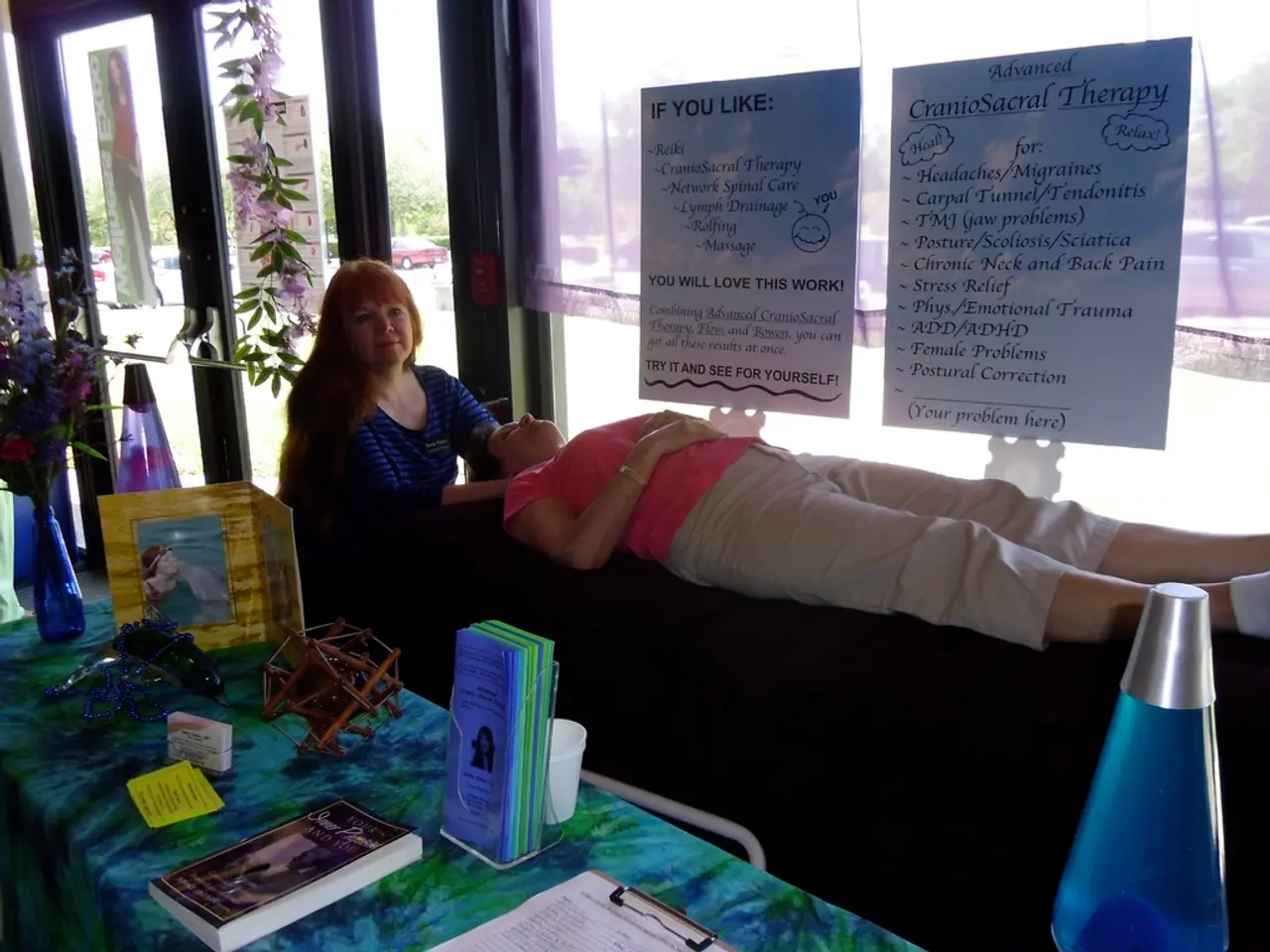Significance of Psychological Well-being in the Healing Process of a Slipped Disk
In the journey towards recovery from a slipped disc, open communication with healthcare professionals about mental health concerns plays a crucial role. This is according to our clinic's comprehensive treatment approach, which aims to address all aspects of recovery, including mental health, to ensure a successful healing process.
Consulting with a mental health professional, such as a therapist or counselor, can provide a safe space to express emotions, learn coping mechanisms, and develop strategies to navigate the challenges of slipped disc recovery. This professional support can significantly improve pain management, treatment compliance, stress reduction, and overall well-being during the recovery period.
Joining support groups or online communities with individuals going through similar situations can also provide a sense of belonging, emotional support, and practical advice. These communities can serve as a source of encouragement and motivation, helping individuals to stay focused on their recovery goals.
Engaging in self-care activities is equally important. Practicing relaxation techniques, getting enough rest, maintaining a balanced diet, and engaging in hobbies can significantly improve mental health during slipped disc recovery. These activities can help reduce stress, promote a positive mindset, and enhance the healing process.
At our clinic, the treatment approach encompasses not only physical therapies but also prioritizes mental well-being to provide the best chances of healing and regaining an optimal quality of life. We believe that a holistic approach, which includes mental health aspects, is essential for a successful recovery.
However, it's worth noting that not all clinics share this approach. For instance, the Gelenk-Klinik Gundelfingen in Germany offers treatment for disc herniation and related spinal conditions, but there is no specific information indicating a comprehensive approach that explicitly includes mental health aspects in their treatment of herniated discs.
In conclusion, a comprehensive approach to slipped disc recovery should not only focus on physical therapies but also prioritise mental well-being. By seeking professional help, joining support groups, practicing self-care, and communicating openly with healthcare professionals, individuals can enhance their chances of a successful recovery and improve their overall quality of life.
Read also:
- Competing strategies for addressing infertility come under scrutiny in the halls of Congress
- High school football in Ohio called off due to a legal dispute claiming players suffered violent hazing incidents
- Job opening at Save the Children organization
- Essential Techniques for Successful Snack Food Business Branding





